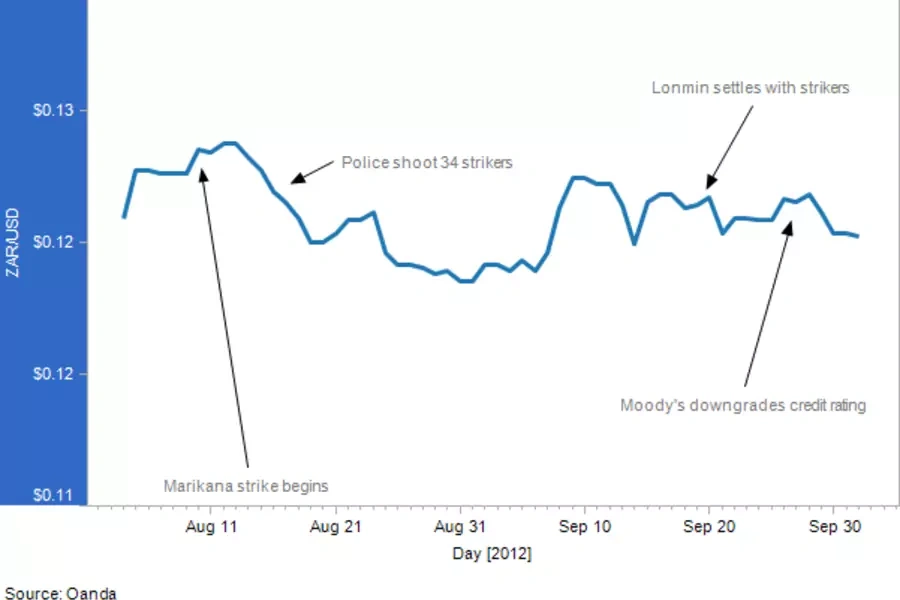More on:
In the aftermath of the Marikana strike and associated violence, the rand has remained highly volatile against the dollar. Industrial unrest is spreading in the mining and trucking industries. Last week, Moody’s, the international ratings agency, downgraded the South African government bond rating from A3 to Baa1. It cited uncertainty about the government’s ability to address the country’s socioeconomic problems as justification. Yesterday, Bank of America warned of the risk of a further credit downgrade by Moody’s, Standard & Poor’s, and Fitch if the uncertainty persists.
What is happening?
Far from going away after the mining giant Lonmin settled with the strikers at Marikana, labor unrest has spread throughout the mining industry. The Financial Times estimates that eighty thousand workers are on strike, perhaps 15 percent of the underground labor force. Most of these strikes are illegal. Ominously, the Financial Times reports that the strikers are not negotiating through “establishment” trade unions tied to the governing African National Congress (ANC) but instead using “workers’ representatives” that are more militant. The gold mining giant Anglo Gold Ashanti has announced that it may curtail its operations in South Africa if the labor unrest continues.
Twenty thousand transport workers are also on strike over wage disputes, resulting in shortages ranging from medicine and gasoline to cash at ATM machines. This directly impacts the general population in a way that the striking miners do not. Violence has been reported, but no deaths.
President Jacob Zuma is using the South African National Defense Force to supplement the police.
The proverbial “elephant in the living room” is the ANC’s December convention where Zuma’s party leadership, and likely his continued presidency, will be directly challenged. As of today, I think Zuma will surmount those challenges. But if the labor unrest intensifies, Zuma’s odds will decline.
At the very least, there is now a climate of political uncertainty as well as spreading labor unrest. International investors–and the international ratings agencies–do not like uncertainty. South Africa is not in crisis, but I would watch the rand exchange rate.
More on:
 Online Store
Online Store
